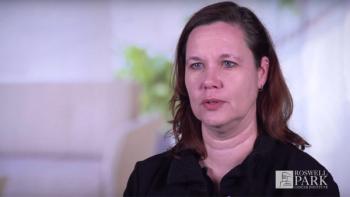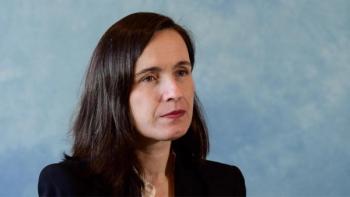
Administration of dexrazoxane along with adjuvant chemotherapy was cardioprotective in patients with HER2-positive breast cancer treated with chemotherapy followed by 1 year of trastuzumab maintenance therapy.

Your AI-Trained Oncology Knowledge Connection!


Administration of dexrazoxane along with adjuvant chemotherapy was cardioprotective in patients with HER2-positive breast cancer treated with chemotherapy followed by 1 year of trastuzumab maintenance therapy.

From 1983 to 2007, the incidence of renal-malignancy end-stage renal disease has greatly increased, according to the results of a study.

Value in its essence is preference or outcome divided by cost, or described in terms of a mathematical equation, value = outcome (preference)/cost. It follows, then, that value is increased by holding outcome constant and reducing cost, or by improving outcome while holding cost constant.

PARP inhibitors are an active, novel, and exciting class of anticancer agents. They have shown clear patient benefit in gBRCA, HR-deficient, and other ovarian cancers.

Ultimately, meaningful value assessment is going to require unbiased comparisons between competing strategies. Decision models are extremely useful in this regard and can provide important insight into cost-effectiveness evaluations.

You may have missed the report concluding that patients had lower readmission and mortality rates if they were under the care of female hospitalists vs their male counterparts. I know excellent physicians in both camps and some sorry ones as well.

A risk scoring algorithm based on several risk factors was able to accurately predict chemotherapy-induced nausea and vomiting.

In Oregon, the number of physician-aided dying prescriptions has increased annually since the passing of the state’s Death with Dignity Act in 1997.

In this interview we discuss the use of CTCs and circulating tumor DNA for prognosis and disease monitoring in patients with breast cancer.

This video examines long-term findings from a trial that tested ADT alone vs ADT plus chemotherapy as adjuvant therapy for patients with high-risk prostate cancer, including some surprising results and important takeaways.

This video explores the value proposition in cancer care, with practical considerations for reducing costs at both the hospital and physician level while maintaining optimal care for cancer patients.

Young men who are overweight or obese are at risk of developing severe liver disease or liver cancer in later life, particularly those who have type 2 diabetes mellitus.

This video reviews recommendations for the prevention and management of thrombosis in patients with cancer.

This video highlights recent research in cisplatin-resistant testicular cancer, including a study on whole exome sequencing that revealed several actionable targets.

In this interview we discuss the role of genetic testing in patients with colon cancer.

ASCO has released a statement announcing its opposition to President Trump’s budget outline for FY2018, which would cut about $6 billion in funding to the National Institutes of Health.

This video examines research that found that certain genetic variations of both leukemia patients undergoing bone marrow transplant and their unrelated donors were associated with poor outcomes.

A study of the combination of radiation therapy and immune checkpoint inhibitors for the treatment of advanced lung cancer found a modest risk of side effects.

This video highlights some of the latest developments guiding precision medicine for lung cancer in clinical practice.

No difference in time to recurrence, recurrence-free survival, or overall survival were noted for patients with rectal cancer who underwent one of three different preoperative radiotherapy regimens.

Elderly patients with glioblastoma had longer survival when temozolomide was added to short-course radiotherapy compared with undergoing short-course radiotherapy alone.

This video examines updated data from a phase II trial that compared a single dose of high-intensity SBRT with a standard three-dose schedule as treatment for patients with non-small-cell lung cancer.

This video covers the treatment approach for patients with androgen receptor–indifferent prostate cancer.

Thromboprophylaxis with oral apixaban was similar to subcutaneous enoxaparin with regard to safety outcomes in women undergoing surgery for suspected gynecologic malignancies.



Treating women with stage IVB cervical cancer with whole pelvic radiation along with standard chemotherapy improved survival over chemotherapy alone in a retrospective study.

Completing a course of preoperative radiotherapy prior to undergoing surgical resection for rectal cancer was associated with improved survival compared with patients who had an incomplete course of radiotherapy.

Breast surgeons can and should provide genetic counseling to their patients because the need outstrips the availability of genetic counselors.

What class of agents negatively affects responses in patients with metastatic renal cell carcinoma treated with immune checkpoint inhibitors? Which gender is significantly more likely to undergo radical cystectomy for bladder cancer? Test your knowledge on genitourinary cancers in our latest quiz.